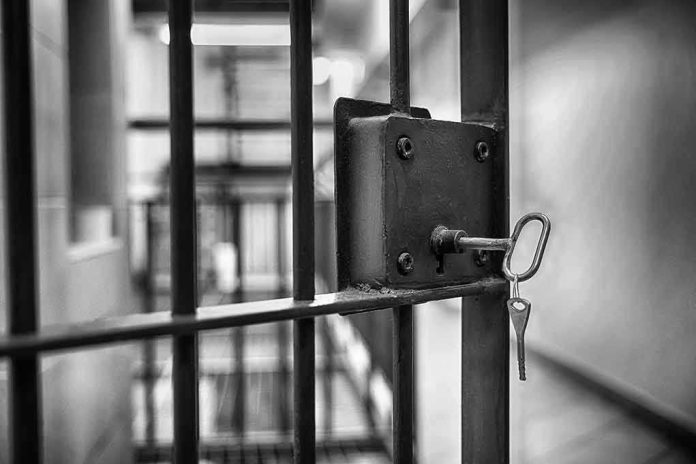
A sweeping new ordinance in New Jersey threatens to jail parents for their children’s misbehavior, igniting fierce debate over government overreach and parental rights.
Story Snapshot
- Gloucester Township’s ordinance allows up to 90 days jail or $2,000 fines for parents if their children repeatedly break the law.
- The law covers 28 offenses, including felonies, narcotics, truancy, and ambiguous “immorality” clauses.
- No parents have been jailed yet, but warnings and citations have begun; legal challenges are anticipated.
- Critics warn the ordinance may erode constitutional protections and set a troubling precedent for government control over families.
Gloucester Township’s Parental Accountability Ordinance Raises Alarm
On July 28, 2025, the Gloucester Township Council in Camden County, New Jersey, passed a new ordinance holding parents legally and financially responsible for their children’s criminal acts. Under this law, parents or guardians of minors under 18 could face up to 90 days in jail or pay fines as high as $2,000 if their children repeatedly commit any of 28 covered offenses. These offenses range from felonies and narcotics violations to truancy and broadly defined acts of “immorality.” The ordinance was crafted in response to mounting frustration after several high-profile incidents of teenage misbehavior, including the cancellation of a major community event, Gloucester Township Day, in 2024 due to threats and public disruption.
The law took effect on August 8, 2025, and is already sparking heated debate in both local and national media. While the township council argues the ordinance is a necessary response to restore public order and safety, parents and legal experts warn it could unfairly punish families and infringe on core rights. Notably, the inclusion of ambiguous terms like “immorality” has drawn criticism for vagueness, raising concerns about potential misuse or selective enforcement. Local police are tasked with reporting juvenile offenses, and repeat violations can escalate cases to the juvenile court system, which may trigger the harshest penalties for parents. The ordinance’s severity distinguishes it from more typical parental responsibility laws, which usually impose only civil fines or damages rather than criminal penalties and imprisonment.
Legal and Constitutional Concerns over Parental Criminalization
The new measure has reignited debate over the limits of government power and the protection of fundamental constitutional rights. Legal experts point to the rarity and controversy of criminal penalties for parental responsibility in the United States, where most similar laws stop short of jail time. Critics argue that punishing parents for actions beyond their reasonable control risks violating due process and undermines the principle of individual accountability. The ordinance’s vague language, particularly around offenses labeled as “immorality,” creates uncertainty and opens the door to arbitrary enforcement or targeting of specific families. Civil liberties advocates warn that such statutes may ultimately erode constitutional protections and family autonomy, setting a precedent for further government intrusion into private life.
No parents have yet been jailed under the ordinance, but warnings and citations have already begun. Local advocacy groups and some parents are preparing for possible legal challenges, questioning both the effectiveness and fairness of the law. Nationally, similar ordinances have faced court scrutiny, with mixed outcomes regarding their constitutionality and impact. The potential for Gloucester Township’s policy to be replicated in other jurisdictions has intensified the spotlight, especially as communities across the country grapple with youth crime and demands for public safety. The ordinance’s broad reach and severity have placed it at the center of a national conversation about the balance between order, liberty, and parental rights.
Community Reaction and the Broader Battle for Family Autonomy
The ordinance’s passage has sharply divided Gloucester Township, with many residents expressing anxiety over heightened parental liability and the threat of jail time. Supporters insist that stricter measures are needed to restore discipline and community safety after a wave of disruptive youth behavior. Opponents, however, argue that the law punishes families indiscriminately and risks stigmatizing parents who may already be struggling to control difficult situations at home. The financial strain of potential fines and the looming specter of criminal records for parents have added to community tensions. As enforcement proceeds, all sides are closely monitoring for the ordinance’s first test cases and any ensuing court battles that could set important legal precedents.
New Jersey parents could face jail time under town’s ordinance targeting children’s unruly behavior https://t.co/MTijiCux8t pic.twitter.com/syRVoM1I21
— New York Post (@nypost) August 9, 2025
Expert commentary underscores the complexity of the issue. While some studies suggest that holding parents accountable can modestly deter youth crime, scholars and child psychologists caution that overly punitive approaches may backfire—damaging family relationships and failing to address deeper causes of juvenile misconduct. Legal professionals warn that the ordinance’s sweeping powers and ambiguous language could undermine public trust and erode respect for the rule of law. As Gloucester Township’s policy unfolds, it serves as a flashpoint in the ongoing clash between demands for public order and the defense of family autonomy, individual liberty, and constitutional protections cherished by many Americans.
Sources:
Gloucester Township passes ordinance making parents responsible for kids’ crimes
Parents can be fined and charged for kids’ bad behavior in South Jersey town
Gloucester Township passes ordinance holding parents responsible if their kids get in trouble




